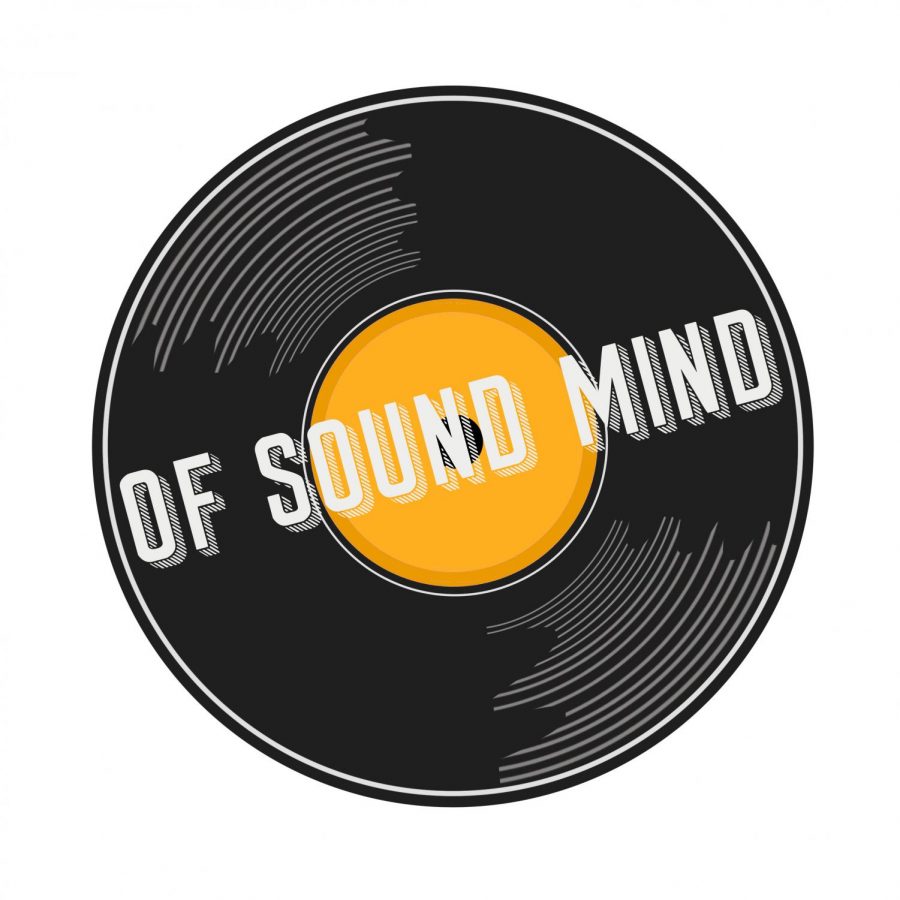Of Sound Mind | Arlo Parks’ “Collapsed in Sunbeams”
Of Sound Mind is a biweekly blog about new albums, old albums, forgotten albums, overrated albums and any other type of listening experience from senior staff writer Lucas DiBlasi.
February 8, 2021
Arlo Parks dropped singles for more than two years before the slowly bubbling hype finally came to traditional fruition with her first (New York Times Critic’s Pick!) full-length album.
The 20-year-old singer-songwriter released “Collapsed in Sunbeams” on Jan. 29, and her debut album functions mostly as a vehicle for her older singles, although there are a few highlights mixed into the new material. Charming and smooth, the new album pairs a warm timbral sheen with consistent lyrical themes to create a pleasant musical journey.
Parks is, by all appearances, a devourer of literature. It’s difficult to find an interview or Instagram livestream where she doesn’t mention the poetry — often Sylvia Plath — or heady literature she’s reading, and her poetic tendencies are evident throughout the album. The first track, which is also the title track, is just a minute of Parks softly reading a poem in her lovely British accent.
“We’re all learning to trust our bodies, making peace with our own distortions / You shouldn’t be afraid to cry in front of me. I promise,” Parks intones, introducing the themes of growth, sadness and vulnerability that echo throughout the album. And although I have some quibbles with the rest of the album’s lyric-writing, it’s a good poem, and it’ll be interesting to see if Parks follows through on her plans to publish a book of poetry.
Almost half of the songs on the album are singles from the past year, and the second track, “Hurt,” is the best of them. Similar to several other songs she’s written, “Hurt” centers on a character, Charlie, who’s having a rough time. In the chorus, though, Parks offers some advice — “Just know it won’t hurt so / Won’t hurt so much forever.” The drum beat pulses under warm chords and Parks’ crisp vocals.
“Too Good” is the first full-length new song on the album, and it’s quite catchy. “Why’d we make the simplest things so hard?” she sings about a one-sided relationship. Her voice is piercing in its accusations even as the vocal delivery sounds effortless.
Parks is a fantastic singer. The studio versions of her songs often feature her voice closely doubled — a technique where a singer sings the same lines two (or more) times and all takes are included in the final cut. The effect can strengthen a weak-sounding vocalist, but also make a strong vocalist’s performance shine through in a radio-ready, polished way.
While the layers give her voice a distinct and wonderful sound, it’s clear that Parks is a fantastic singer. The live versions of her earlier songs (not included on the album) sound just like the studio versions, and her guest performance on Glass Animals’ livestream of “Tangerine” is perfect. Her emotionally expressive delivery and smooth tone combined with her lyrical aptitude are the soul of “Collapsed in Sunbeams.”
“Hope” and “Just Go,” two new songs, showcase the work of Gianluca Buccellati, who produced most of the album. Jazzy and easy to listen to, they both revolve around Parks singing to someone struggling with mental illness, although the former is about a friend and the latter a partner.
Nearly every song on the album falls into one of those two categories — the mental illness of a friend or the proxy mental illness of a fallout with a lover — and it mostly makes the album feel like it has a cohesive theme. However, throughout the course of the album, the songs that begin with a new character with a new name and a new metaphor for mental illness begin to sound the same. The subject matter can be inherently tiring, and the similar vibe of the songs and melodies blend together into a bit of a monotony.
Additionally, parts of Parks’ songs (see “Bluish”) are often spoken word, and as a matter of taste, I don’t love poetic interludes in songs. While they usually fit the song, and there are moments of brilliance, they can come off as a little sophomoric at times, both in their frequency and content.
The singles from the past year that make up a large portion of “Collapsed in Sunbeams” are all fantastic. You can find my review of them here, and they’re the reason I had high hopes for this album. I can’t discount the fact that “Black Dog” still hits like a freight train, “Hurt” is a vibrant tune and “Caroline” is a great piece of storytelling, but the similarity of the new songs without improvement on the thematic or sonic outlines of the old ones is a bit disappointing.
I do give Parks a lot of credit for her lyrical ambition, though, and she is well on her way toward defining a voice for herself. Often, in these songs about heartbreak and pain, she plays the role of a third-person narrator, watching as her generation stubs its toes over and over again and swooping in to give encouragement. “Making rainbows out of something painful,” she sings on “Portra 400,” the last song on the album, serving as a theme for Parks’ narration.
“Collapsed in Sunbeams” is well-produced, with ambitious, hard-hitting lyrics and brilliant vocal delivery. My qualms with its bits of monotony don’t detract much from its easy listening, and I’m excited to see what Parks creates in the future. I give “Collapsed in Sunbeams” an honest and pleasant 6.3/10.
Lucas DiBlasi is a music composition and digital narrative and interactive design double major. You can write to him at LND28@pitt.edu.



